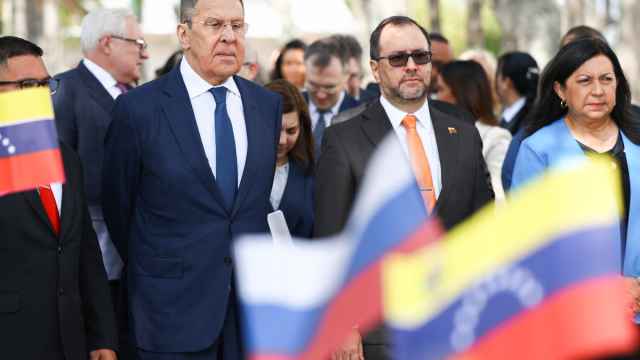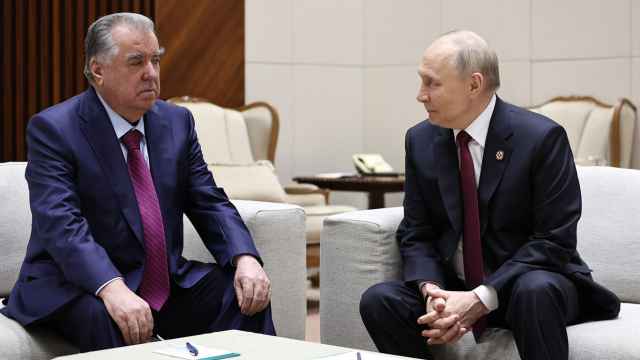The Employment section did not involve the reporting or the editorial staff of The Moscow Times.
Considering starting a business in Russia? Contemplating your company's expansion to the Russian market? Then you must already be aware of some of the bureaucratic red tape coming your way. In spite of the fact that such expansion plans are usually made far in advance and every aspect is considered and reviewed in detail, it is still often the case that everything is long set up, clients are eager to receive products and services but the key personnel is still not in place. In order to avert many operational as well as legal problems and avoid finding yourself disappointed right from the start, immigration issues have to be considered as central to any international assignment.
PLANNING AN INTERNATIONAL ASSIGNMENT
Normally in order to legally perform work activities in Russia every foreign national save citizens of Belarus and Kazakhstan have to obtain a work permit. Citizens of countries which do not belong to the CIS have also to apply for a work visa.
Though the exception is also granted to foreign employees of manufacturers and suppliers of equipment imported into Russia, so that they are allowed to enter Russia and participate in works related to installation of such imported equipment without a work authorization. Although, it should be noted from the start: this type of employees is granted one of the types of a business visa and general "business visa" rules still apply. For example that one's stay can't exceed 90 days in each 180 days period. Thus, this means for employers that all the works should be planned for the term not exceeding three months or a "substitute" team should be planned and if necessary hired in advance.
Otherwise there are two main procedures available for engaging foreign labor in Russia. First is the old "standard work permit" procedure which involves multiple stages and in practice can be completed in 4-5 months. In spite of the fact that Ministry for Labor and Social Development has recently approved quite an extensive list of job positions for which quota for engaging foreign labor is not required, in order to deploy this process the company has to have an approved quota for engaging foreign labor for the year in question which is extremely rare for recently established companies.
The other option would be to make use of the procedure for highly qualified professionals introduced in 2010. Though the Russian legislation does not contain any specific requirements concerning educational qualifications or other professional qualities of such employees, it is required that the salary for this type of staff is set at the benchmark of not less than 2,000,000 rubles gross per year (about 42,000 EUR). At the same time this option can turn to be beneficial for most of the international companies considering moving their employees to Russia due to the shortened processing time — approximately 1,5 months for completion of all steps.
With regards to the both options described above it should be noted that according to the Russian labor legislation a labor agreement should be signed irrespective of the fact if the assignee in questions remains on the host entity payroll or not.
One of the other important points for consideration is assignees with family or partners willing to accompany your employees on assignment. It is well known that Russian migration legislation, for instance, does not recognize civil partnerships. What is more there are problems with such categories as children over 18, gay couples, children from previous marriages who were not adopted by the assignee or the last but not the least nannies, nurses or other domestic staff from visa countries.
As it can be seen from the above there are a lot of questions to be considered before it is even possible to start planning an international assignment as many issues need to be resolved such as what work permit option will apply, if assignee will be able to travel with his family members or partner, whether he will require to make any additional arrangements for his children and etc.
TIPPS FOR EMPLOYER
When opting for a highly qualified professional scheme described above employers should bare in mind that any part time employment for specialists hired using this procedure is possible only if the full salary is paid. Many questions also arise with regards to maternity and other types of leave, considering the fact that Federal Migration Service officials always stress the importance of following the requirement that such employees are paid not less than 2,000,000 rubles per year gross irrespective of any leaves they take, including maternity and sick leave. If any type of unpaid leave is granted for more than one month the Federal Migration Service should be notified.
TIPS FOR EMPLOYEE
When you are on the international assignment in Russia yourself you should consider that a part of responsibility for compliance with immigration legislation will be imposed on you.
Thus, you should be aware that foreign nationals entering the territory of Russian Federation should register with the local migration service office: those with a business visa (unless you are staying in a hotel which will take care of the registration requirement) and with "standard work permits" referred to above — within seven business days and those holding work permits procured under the highly qualified professional scheme — within 90 calendar days.
In this regard it is important to be aware of the fact that noncompliance with the address registration requirement can according to the Administrative Code lead to deportation for the employees based in Moscow, St-Petersburg as well as those residing in Leningradskaya and Moscow regions.
In addition to being extra careful with the immigration specific matters one has to be aware that even administrative offences: road traffic violations as well as different sort of public order disturbances can endanger your assignment. Recently there has been a rise in banns to enter Russia in accordance with the Sec. 4 Art. 26 of the Federal Law 114 on the order of entering and exiting Russian Federation which allows a ban to be imposed on a foreign national who has committed two or more administrative offences in three years.
Not only is it a quite challenging to plan and execute flawlessly an international assignment in the first place, but having a successfully relocated employee is not a finish line. Management of international assignments requires constant attention of specialists with specific experience in the area.
The Employment section did not involve the reporting or the editorial staff of The Moscow Times.
A Message from The Moscow Times:
Dear readers,
We are facing unprecedented challenges. Russia's Prosecutor General's Office has designated The Moscow Times as an "undesirable" organization, criminalizing our work and putting our staff at risk of prosecution. This follows our earlier unjust labeling as a "foreign agent."
These actions are direct attempts to silence independent journalism in Russia. The authorities claim our work "discredits the decisions of the Russian leadership." We see things differently: we strive to provide accurate, unbiased reporting on Russia.
We, the journalists of The Moscow Times, refuse to be silenced. But to continue our work, we need your help.
Your support, no matter how small, makes a world of difference. If you can, please support us monthly starting from just $2. It's quick to set up, and every contribution makes a significant impact.
By supporting The Moscow Times, you're defending open, independent journalism in the face of repression. Thank you for standing with us.
Remind me later.





